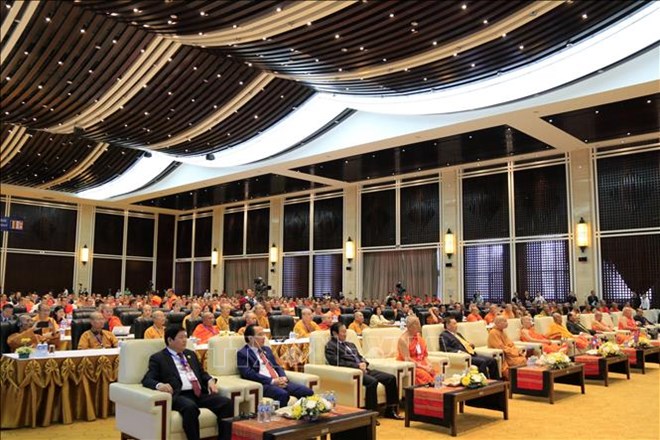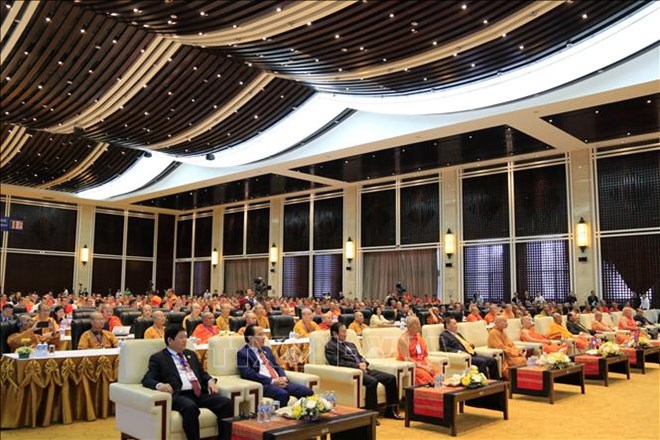



Delegates at the conference (Photo: VNA)
The conference saw the attendance of President of the Lao Front
for National Construction Saysomphone Phomvihane, President of the Lao Buddhist
Coalition Most Venerable Ngon Damlongboun, Cambodia’s Great Supreme Patriarch
Most Venerable Monk Tep Vong and Chairman of the Vietnam Buddhist Sangha’s
Executive Council Most Venerable Thich Thien Nhon, along with nearly 600
delegates from the countries.
In his opening remarks, President of the Lao Buddhist Coalition Most Venerable
Ngon Damlongboun highlighted the special significance of the event to Buddhism
and people in the three countries as it is a step forward to realise documents
signed by Buddhist organisations in the countries.
The Buddhist leaders took stock of the cooperation between the Buddhist
organisations in the three countries and acknowledged the need to enhance their
friendly ties and coordination in religious matters and other activities, in
order to meet society’s demand and join the international community’s effort to
address global problems such as trust crisis, environmental crisis, climate
change, diseases, conflicts and poverty, in order to bring about happiness,
peace and prosperity to the region and the world.
In that spirit, the Buddhist leaders agreed to consolidate the solidarity and
harmony among Buddhist associations, and popularise the tradition of solidarity
and special friendship among Buddhists and people of Vietnam, Laos and
Cambodia, on the basis of respect for each other’s sovereignty, equality, peace
and harmonious development.
They also consented to expand exchanges among Buddhist monks, nuns and
followers from the countries, and encourage border localities to tighten their
solidarity and mutual support in Buddhist affairs, and together build common
borders of peace and friendship in Buddhism.
The delegates concurred to step up Buddhist cultural exchange and implement
projects on preserving Buddhist cultural values in each country, while
encouraging people to take part in regional and international Buddhist
activities, thus contributing to peace and development in the Association of
Southeast Asian Nations (ASEAN) and Asia-Pacific.
Source: VNA